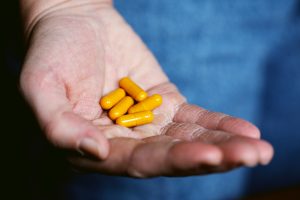Chlamydia is a common sexually transmitted disease (STD). It can affect both men and women. Many people do not know they have it because they do not notice symptoms. Chlamydia is easy to treat with medicine. But if left untreated, it can cause serious health problems.
Chlamydia Symptoms
Chlamydia symptoms can vary. Some people may not have any signs at all. For those who do, symptoms might show up a few weeks after getting infected. In women, common symptoms include:
- Pain when peeing
- Unusual discharge from the vagina
- Pain in the lower belly
- Bleeding between periods
In men, symptoms can include:
- Pain when peeing
- Discharge from the penis
- Pain and swelling in one or both testicles
If chlamydia infects the rectum, it can cause:
- Pain
- Discharge
- Bleeding
Chlamydia Treatment
Chlamydia treatment is simple and effective. Doctors often prescribe antibiotics to clear the infection. It is important to take all the medicine, even if symptoms go away. Here are some common medications used for chlamydia treatment:
- Azithromycin: Often given as a single dose.
- Doxycycline: Taken for seven days.
- Erythromycin: Another option if allergic to other drugs.
- Levofloxacin: Used for those who cannot take doxycycline.
- Ofloxacin: Another alternative for treatment.
These medications are very effective. But it is important not to have sex until the infection is fully treated. This helps prevent the spreading of the disease.
Prevention
Preventing chlamydia is very important. Here are some steps to help protect yourself:
- Use condoms: Always use condoms during sex. They are the best way to prevent STDs.
- Get tested: Regular testing can catch chlamydia early. This is important if you have new or multiple partners.
- Talk to your partner: Make sure your partner gets tested and treated if needed.
- Limit sexual partners: Having fewer partners lowers the risk of getting chlamydia.
- Avoid douching: Douching can remove some of the good bacteria in the vagina. This can increase the risk of infection.
Chlamydia can also be passed from a mother to her baby during childbirth. Pregnant women should get tested and treated to protect their babies.
Treating partners is also important. If one partner has chlamydia, the other should be treated too. This helps stop the spread of the disease.
By knowing the symptoms, getting treated, and taking steps to prevent it, you can protect your health. Remember, regular check-ups and open communication with your partner are key. Stay safe and take care of your sexual health.
This is why regular testing is so important. If you think you might have chlamydia, see a doctor right away. Early treatment can prevent long-term problems.
By following these steps and being aware, you can help stop the spread of chlamydia. Always practice safe sex and keep open lines of communication with your partner.
Chlamydia is common, but it does not have to be a part of your life. With the right knowledge and precautions, you can stay healthy and avoid infection.
FAQs
- What are the common symptoms of chlamydia?
Chlamydia symptoms include pain when peeing, unusual discharge, and lower belly pain in women. Men may experience discharge and testicle pain. - How is chlamydia treated?
Chlamydia is treated with antibiotics like azithromycin or doxycycline. It is important to take all prescribed medicine. - How can I prevent chlamydia?
Prevent chlamydia by using condoms, getting regular tests, and limiting sexual partners. - Can chlamydia be cured?
Yes, chlamydia can be cured with proper antibiotics. Early treatment is key to avoiding complications. - Is it possible to have chlamydia without symptoms?
Yes, many people with chlamydia do not show symptoms. Regular testing is important to catch it early.



